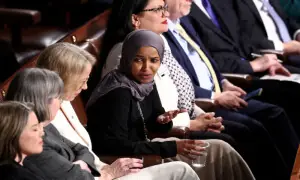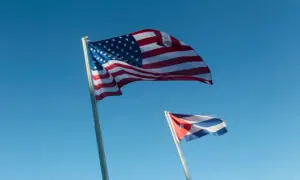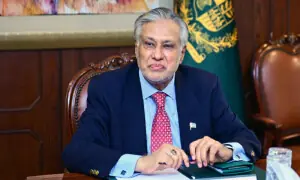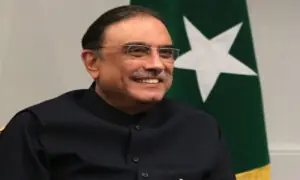On rape, robots and Prime Minister Imran Khan
5 min readPrime Minister Imran Khan seemed to blame everyone but men for the rise in rape in 2021.
Perhaps if he had quickly acknowledged a rapist’s role in the crime, there would have been lesser outrage. Instead, it’s easy to recall how many times he got it wrong -- and his supporters went into a tizzy trying to explain what he meant when he said what he did -- than when he finally seemed to get it right.
PM Imran’s thoughts on castration for rape are well known and were back in the spotlight following the gang rape of a woman traveling on the Gujranwala motorway with her children.
Then he told 92 News in an interview: “I personally think paedophiles and rapists must be hanged publicly but I'm told that we have international repercussions. EU's GSP status for trade with Pakistan will be affected by public hangings. Hence, I think chemical castration must be conducted on those criminals," he said during the interview.
About the main accused of the crime, Abid Ali, who was caught in 2013 for gang rape, the prime minister told 92 News "had he been given strict punishment, this incident would not have happened.”
While the prime minister acknowledged Abid Ali as the man responsible for the crime, the police chief investigating the crime, Umer Sheikh will be remembered for blaming the woman for being out late at night by herself. His comments were widely condemned both at home and abroad.
The backlash from the public was swift with civil society organizations and protestors demanding an apology.
The public pressure seemed to work because Sheikh apologized “to the victim and all other classes who were hurt by my remarks.”
Although the prime minister has repeatedly blamed a decline in family values for a rise in sex crimes, in April this year, during a live telethon, he answered questions about what he had done to address the rise in sex crimes.
Things went south thereon.
He blamed obscenity in society and spoke of the veil (purdah) as a way to prevent temptations putting the onus on women to protect themselves from being raped.
“This entire concept of veil in our religion (Islam) is to avoid temptation in the society. Not everyone in the society has the will power to control (himself). The more you raise the level of obscenity in a society, the more it will have an impact,” he replied.
It came as no surprise to anyone but his supporters that those comments were met with huge outrage – again both locally and internationally.
The rage was directed at the disconnect in the prime minister and his ministers’ defence of the “taken out of context” statement – because journalists were reporting rapes on babies, children, women, men and in one gruesome case, a corpse of a young girl was dug up and raped in Thatta.
His former wife Jemima Khan also tweeted about his comments, quoting from the Quran and saying the onus was on men.
Given the nature of the news cycle, the matter seemed to die down but resurfaced when he was asked by HBO in June to explain his earlier comments about the purdah and sex crimes.
“If a woman is wearing very few clothes it will have an impact on the man unless they are robots. It’s common sense,” he told Jonathan Swan of HBO Axios.
The backlash seemed more intense this time.
Women were especially angry that the PTI government did not want to acknowledge how dangerous the country was for women. You had PTI minister Shehryar Afridi recording a video in New York City saying Pakistan was safer for women versus 20% respondents in a poll saying Pakistan was safe for women.
A poll of global gender security experts in 2018 ranked Pakistan as the sixth most dangerous country worldwide for women.
Men on social media also tweeted their protest at being portrayed as hapless individuals unable to control their urges.
Human Rights Commission of Pakistan described the prime minister’s comments as “dangerously simplistic and only reinforces the common public perception that women are ‘knowing’ victims and men ‘helpless’ aggressors.”
Khan was portrayed as a rape apologist from all corners of the world in articles and opeds – opposition leaders like Maryam Nawaz not missing a beat to call him out.
It prompted Special Assistant to the Prime Minister Raoof Hasan to write a letter to The Guardian on June 30 explaining the context in which Khan made his comments about the purdah and rise in sex crimes.
"What he said is that while strict and stringent laws should be promulgated to deal with heinous acts like rape, it may also be worthwhile to look at why there was a mention of observing purdah in Islam and whether that can help in the avoidance of rape crimes through these evolutionary times," he wrote.
Perhaps the first time the prime minister was explicit in his condemnation of rapists was in his interview to PBS in July.
“Anyone who commits rape, solely and solely, that person is responsible,” he told Judy Woodroff. “No matter whatever – how much ever a woman is provocative or whatever she wears, the person who commits rape, he is fully responsible. Never is the victim responsible.”
While the prime minister hasn’t waded into any rape-related commentary since that emphatic denouncement on PBS, his government seemed to have been impacted by the outrage.
In November, lawmakers passed an anti-rape bill which will set up fast-track courts to decide cases in 45 days, give stricter punishments to sex offenders, award death pentaly to gang rape and shield victims’ identity. The bill revised an earlier stipulation of chemical castrations after clerics objected to the punishment as un-Islamic.
While he has remained silent insofar as controversial comments about sex crimes go, perhaps one can find relief knowing the anti-rape law was a response to a public outcry against the rise in sex crimes and growing demands for effectively stemming them.
For the latest news, follow us on Twitter @Aaj_Urdu. We are also on Facebook, Instagram and YouTube.
























Comments are closed on this story.